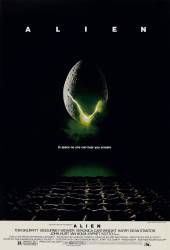
Question: Question about the Director's Cut of the film. The scene where Brett is looking for Jones has been altered slightly - when he looks up at where the water is dripping from, you can actually see the Alien hanging motionlessly from one of the chains. Has Ridley Scott given an explanation as to why he added this new dynamic to the scene? It's easy enough to speculate why, but a link to an 'official' explanation would be appreciated.
Answer: According to the commentary on the DVD, Ridley didn't add this scene to the original cinematic release because he thought it revealed the true horror of the Alien too soon in the film. The scene is quite early in the film and he thought revealing the fully matured Alien at that time would reduce the viewer's fear.
I had watched Alien several times before I noticed the Alien hanging there.At this point the Audience have no idea what the Alien looks like, they're looking at pieces of science fiction equipment put in by the production crew that they can't relate to, so for all they know the Alien could just be a piece of kit hanging there.
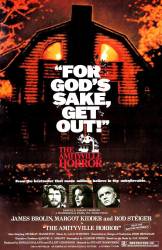
Question: Who did the demonic voice that told the priest blessing the house to get out?
Answer: George Lutz.
How was it accomplished?
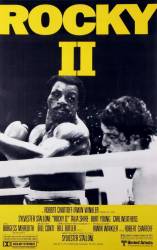
Question: What was Tony's reason that he was afraid of Apollo fighting Rocky again?
Answer: With all the damage Apollo did to Rocky, Rocky still wasn't knocked out. In the film series, Rocky is depicted as having an almost superhuman ability to absorb punches. Rocky also caused internal bleeding in Apollo. Tony knew that Rocky was far more dangerous than anyone realized.
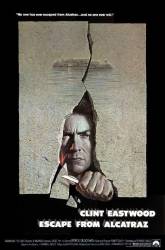
Question: When Frank is delivering books to inmates' cells, he reaches D block, but a guard stops him, and tells him they are not allowed in those cells. Were books really disallowed in D block cells?
Answer: Those were the solitary confinement cells, with no light and no luxuries of any kind. So yes, they did not allow inmates on that block to have books.
This is inaccurate as a light in each cell was turned on at 6:30 every morning in solitary confinement at Alcatraz.
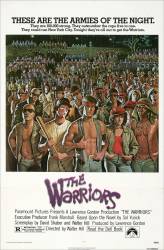
Question: Instead of trying to murder them, why didn't the Lizzies simply contact the Riffs and tell them they had 3 of the warriors and to come get them? They had plenty of time.
Answer: The Riffs had put out a hit on the Warriors via the radio DJ, meaning that it didn't matter if the Warriors were taken alive or not; the Lizzies probably figured it would be easier simply to kill the Warriors and collect the reward.
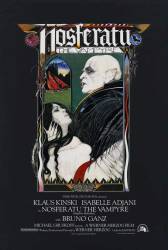
Question: According to Werner Herzog, the rats that appear in the film behaved better than Klaus Kinski during the shoot. Is this true?
Answer: True, though the rats comment was deliberate hyperbole. Kinski suffered from mental illness much of his life. He was often volatile, erratic, disruptive, and sometimes violent on movie sets. Kinski and Herzog had a long professional collaboration but also a friendship pre-dating Herzog's directing career. Otherwise, though Herzog admired Kinski's talent, he probably would never have tolerated working with him; he is the only director who worked with him more than once. Herzog did a documentary about Kinski after his death, which included footage of his on-set rants. Clips are on YouTube.
Moreover, Herzog was initially reluctant to hire Kinski in Fitzcarraldo movie because he was afraid that Kinski would go "totally bonkers" if trapped in the Amazon for any length of time, and his fears proved to be well-founded.
To correct a slight factual error in the answer: Director Alfred Vohrer worked on more movies with Kinski than Herzog did.

Question: Would anyone happen to know what song is playing in the background on the radio beside the intelligence officer sitting at the bar when Martin Sheen enters the Generals trailer and is being interviewed by Harrison Ford for the first time?
Answer: It's not any specific song; it's just the kind of generic piano music you'd hear at dinner at a high-class restaurant of the era. Think of scenes in movies, films, etc. set or made in the '50s and '60s, where the characters go to a nice dinner and there's someone at the piano playing unobtrusive music to accompany the food/conversation.
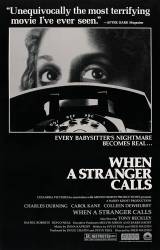
Question: At the beginning, Jill tells the police that she believes the caller is watching her through the windows. Since he calls her, how is this possible since cell phones did not exist at the time this movie came out?
Answer: Sorry, editing my answer because I misunderstood the question. The caller is using a different phone line in the same house. It's possible to have multiple different landlines/phone-numbers in the same building. However, Jill doesn't realise this and probably assumes he's watching her from a different house using binoculars or something similar.
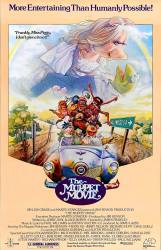
Question: Does anyone know how the effect of Kermit riding the bicycle was done?
Answer: The closest thing to an answer is here, Martin Becker's obituary. His family states that it was a robotic Kermit on a bicycle. Outside of that, everyone else associated with the movie has been quiet on the subject. http://www.fridaythe13thfilms.com/saga/part5/martinbecker.html.
They used gyros in the wheels - Martin Becker made the first self-driving bike for that movie-now the same tech is used in the self-driving bikes seen in the Netherlands. -Diana Becker, Martin's widow.
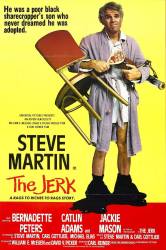
Question: Why is this movie called "The Jerk"? Navin's naive, not a jerk.
Answer: Navin self-applies the "Jerk" epithet early in the film, using it not in the sense of someone obnoxious or mean (as it is used in most cases), but in the sense of a stupid person. He's saying he blames himself and his lack of intelligence (though, as you say, it is usually simple naïveté) for ending up where he is (broke, homeless).
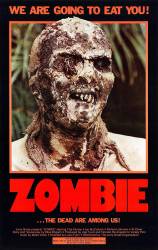
Question: How was the underwater shark attack scene done? Things I want to know are : How come the shark didn't attack the actor? And how did all the make up stay on the actor UNDERWATER? Does anyone (also) know how long filming this scene took?
Chosen answer: After the original zombie extra fell ill, the shark handler was made up to play the underwater zombie. The shark was tame, or at least enough to not attack the handler. The makeup would have been latex/oil based, so it would not have been affected by the water. I remember from the commentary that the filming took 1 or 2 days.
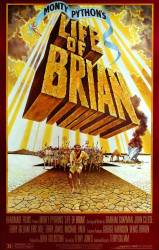
Question: When Brian is about to be crucified, soldiers arrive with news of his release. The soldiers ask for Brian, and everybody shouts "I'm Brian." Is this a parody of the "I'm Spartacus" episode in the Kirk Douglas/Stanley Kubrick film of "Spartacus"? If so, would this support my feeling that Life Of Brian is primarily a parody of classical/biblical 'epic' films?
Answer: Actually, no, the primary goal of "Life of Brian" was not to parody biblical films. Terry Gilliam has stated that the "important" objective of the movie was "to offend a lot of people," particularly "Jews and Christians, because they're easy to push around." Gilliam further said that, at the same time, they were "very cautious not to offend Muslims, because they're the dangerous ones." Both Gilliam and John Cleese have also said that, while the Pythons took care to avoid blasphemy (not directly mocking Jesus of Nazareth, with whom the Pythons had no quarrel), they fully intended that the film be heretical (in defiance of Catholic Church doctrine and dogma). Make no mistake, "Life of Brian" is not supposed to be a lighthearted parody of biblical films; it's supposed to be a sharp stick in the eye to the Roman Catholic Church.
Answer: The scene is a parody of the scene in "Spartacus" (although they are saying "I am Brian" for completely different reasons.) However, the film is meant to be a satire on religion itself and not a parody of epic films. The Pythons did a lot of research to try and accurately portray 1st century Judea, which is why it may look like a biblical epic, but I can't recall any biblical epics they parodied. At the time it was considered blasphemous, and not a parody, and banned in several areas in the UK and some countries. Although the Pythons argued it's not blasphemy but heresy.
Answer: You are indeed correct. It is a parody of the "Spartacus" scene but mostly of religion.
Perhaps not so much a parody of "Spartacus" as a tribute to Stanley Kubrick. Monty Python writer Terry Gilliam was very much a fan of Kubrick films and became friends with Kubrick in the 1980s. Gilliam claimed that Kubrick had even spoken with him about making a sequel to Kubrick's "Dr. Strangelove" (with Gilliam as director). Chances are, the "Spartacus" allusion was part of Gilliam's contribution to the "Life of Brian" screenplay, a tip-o-the-hat to Stanley Kubrick.
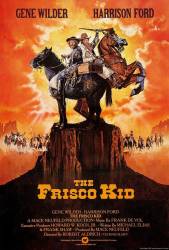
Question: When Avram is departing on his horse after meeting Tommy, Tommy asks him if he speaks any Mexican. Abram, who doesn't, is puzzled by the question and asks why...to which Tommy responds "Just curious." I've always assumed that Tommy was mocking him cause he was unknowingly riding south and headed for Mexico instead of West towards San Francisco. Am I right?
Answer: Right on the nose.
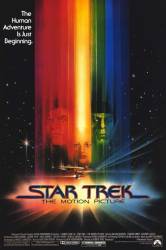
Question: When it is mentioned that Ilia is Deltan, a couple of the male Enterprise crew members (Sulu in particular) look very interested when they hear that. Why? Also, why was it necessary for her to say that she has taken an oath of celibacy?
Answer: Deltans exude an intensely potent and effective chemical substance known as pheromones, which act as signals arousing an intense sexual reaction in other species (in other ST material it's inferred that its potency is so extreme that a non-Deltan risks insanity in a sexual encounter with a Deltan). Upon entering Starfleet, Deltans must swear "an oath of celibacy" so as not to influence or take advantage of crewmembers. That is why Lt. Ilia stated that her "oath of celibacy" was on record.
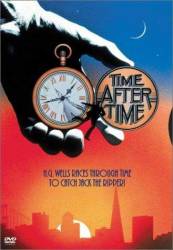
Question: When Amy goes back in time to live with H.G. Wells, why did she choose to change her name to Susan B. Anthony?
Answer: She was joking, but it seems to imply that she intends to influence his political views regarding socialism, global war, women's rights, etc. which the real H.G. Wells wrote about.
Also, H.G. Wells' second wife was named Amy Robbins, the same name as the Amy in the film, which would further indicate she did not change her name to Susan B. Anthony.

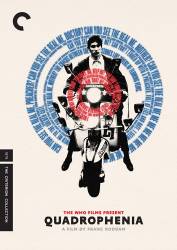
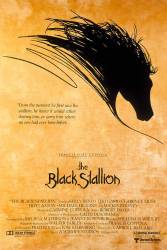
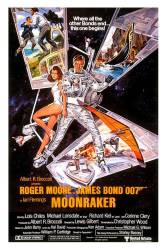
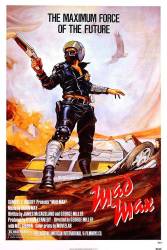
Answer: Yes.
Tobin OReilly